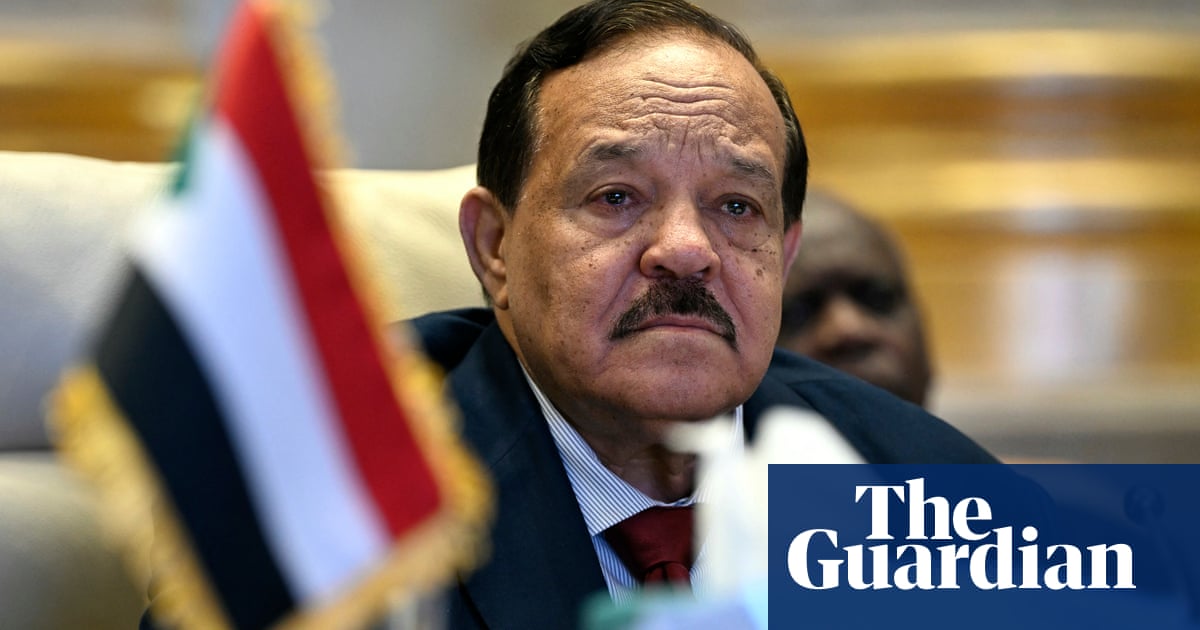Foreign ministers will gather in London and seek to exert diplomatic pressure demanding a ceasefire
The British government is bringing together foreign ministers from nearly 20 countries and organisations in an attempt to establish a group that can drive the warring factions in Sudan closer towards peace.
The conference at Lancaster House in London on 15 April comes on the second anniversary of the start of a civil war that has led to the world’s biggest humanitarian crisis, but has been persistently left at the bottom of the global list of diplomatic priorities. Half of Sudan’s population are judged to be desperately short of food, with 11 million people internally displaced.
The initiative holds risks for the UK foreign secretary, David Lammy, since it may require him to place pressure on some of the UK’s Middle Eastern allies to make good on their promises no longer to arm the warring parties.
The UK along with Germany and France, which are co-hosting the conference, have not invited to London the two warring parties, the Sudanese Armed Forces or the Rapid Support Forces (RSF), a paramilitary group that has attacked non-Arabic groups in Darfur.
The two sides are judged to be a long way from seeking peace and it is thought diplomatic energy is best placed on securing a consensus among rival external backers that a ceasefire must be demanded and impunity for war crimes will end.
Sudan’s foreign minister, Ali Youssef, has written to Lammy to protest against his exclusion. Youssef also criticised invitations to the conference for the United Arab Emirates (UAE), Chad and Kenya, which he termed “stakeholders in the war”.
Sudan’s government has accused the UAE, a close UK ally, of complicity in genocide by covertly arming the RSF, headed by Mohamed Hamdan Dagalo, commonly known as Hemedti. The UAE has condemned as a publicity stunt the Sudanese government’s decision to take on 10 April its claim of UAE complicity to the international court of justice, saying Abu Dhabi helped the RSF commit genocide against the Masalit tribe in West Darfur.
The Sudanese government, itself backed by another UK ally Saudi Arabia as well as Egypt, has also been accused of war crimes. Both the Sudanese Armed Forces and the RSF have formally been accused by the UN of using starvation as a weapon of war.
A harsh spotlight is also very likely to fall in London on the impact of USAID cuts on the provision of humanitarian aid in Sudan as well as the withdrawal of funding from academic groups that have been monitoring war crimes and the build-up of famine.
NGOs such as Human Rights Watch are also urging the ministerial conference to emphasise the importance of civilian protection, independent of a ceasefire.
At an event previewing the conference, Kate Ferguson, the co-director of the NGO Protection Approaches, said: “The conference comes at a critical moment for civilians in Sudan as areas of control under various armed forces rapidly evolve and civilians face an increasing spectrum of varied attack.”
She added: “A new vehicle is needed to take forward civilian protection. This is a moment here to create something new that is desperately needed – whether that is a coalition of conscience or a contact group.”
Ferguson added that “citizens were facing an unimaginable triple threat of armed conflict, identity-based atrocity crimes and humanitarian catastrophe”.
Shayna Lewis from Avaaz said: “The solution that can yield the greatest impact for civilian protection is the restoration of telecommunication networks. More than 25 million people are cut off from the internet and cannot send texts or make phone calls. This is the equivalent of half of England’s population being cut off from the outside world and that explains why it is so difficult for the media to cover Sudan.”
Source: www.theguardian.com
